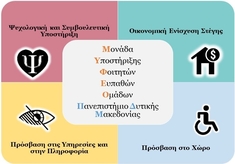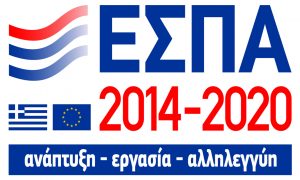ECTS
E.C.T.S. is based on three main elements: information (on student programs of studies and academic results), mutual agreement (between Partner Institutions and students) and the use of E.C.T.S. (showing the student workload). These 3 basic elements become functional through the use of three basic documents: the Information Guide, the Application / Academic Agreement form and the Study Certificate. Above all, the E.C.T.S. becomes functional by students, teaching staff and Institutions, which wish to include full studies integration in the general framework of education. By its very nature, E.C.T.S. does not regulate in any way the content, the structure or the equivalence of the study programs. These issues concern quality and must be defined by the Higher Education Institutions themselves, in order to create a satisfactory basis for cooperation agreements, at bilateral or multilateral level. As a code of good practice, E.C.T.S. provides these contributors with the tools to create transparency and facilitate academic recognition of studies. Full academic recognition of studies is a prerequisite for student mobility under the SOCRATES / ERASMUS Program. Full academic recognition of studies means that a period of study abroad (including examinations or other forms of assessment) replaces a comparable period of study at the University of the student’s country (including examinations or other forms of assessment), although the content of the approved study program may be different. The use of the E.C.T.S. is voluntary and is based on mutual trust and certainty regarding the academic performance of the partner Institutions. The selection of the partners of each Institution is made by the Institution itself.
Transparency
The basic principles on which E.C.T.S. is based and according to which transparency is ensured are presented:
- The academic units should be distributed in the courses, so that they correspond to the required workload of the student for their completion. This number reflects the amount of work required for each course, i.e. lectures, assignments, seminars, tutoring, work placement personal study – at the study room or at home – and exams or other assessment activities. Therefore, E.C.T.S. is based on the full workload of the student and is not only limited to attendance hours. In E.C.T.S. 60 credits represent the workload of an academic year, while 30 credits represent a semester and 20 credits a trimester.
- Universities present a full range of courses offered to students-visitors with written information to the students and the teaching staff of the Institutions, Departments or Faculties, regarding the organization and the structure of the studies and the modules of the courses, clearly indicating the academic units that correspond to each course (Information Guide E.C.T.S.).
- A formal learning agreement is signed between the home University, the host University and the student prior to the student’s departure abroad, outlining the program of studies and the E.C.T.S. which will be granted for its satisfactory completion; it will also bind home and host Institutions as well as the student. This agreement is accompanied by a transcript of records showing the student’s previous academic performance.
- Τhe Host University should issue –for all the courses students successfully attended abroad– an official transcript of records with the course titles and the credits corresponding to each one.
- The Home University should issue a certificate of academic credits recognition received by the students from the partner institutions for the courses they attended there, so that the credits of the courses received by the students abroad could replace the credits that would be awarded by the Home University in an equivalent period of study. Good communication and flexibility are also required in order to facilitate the academic recognition of studies that have been fully or partially completed abroad. In this regard, E.C.T.S. coordinators have an important role, because they mainly deal with the academic and administrative issues of the E.C.T.S. The full range of the courses of Departments using E.C.T.S. should be initially available to mobile students, including courses for a Ph.D.. Students should be able to attend regular courses –and not courses designed specifically for them– and should not be exempted from the obligation of the Host Institution to obtain a degree. C.T.S. ensures that the program entails a reasonable workload for the period of study abroad.









